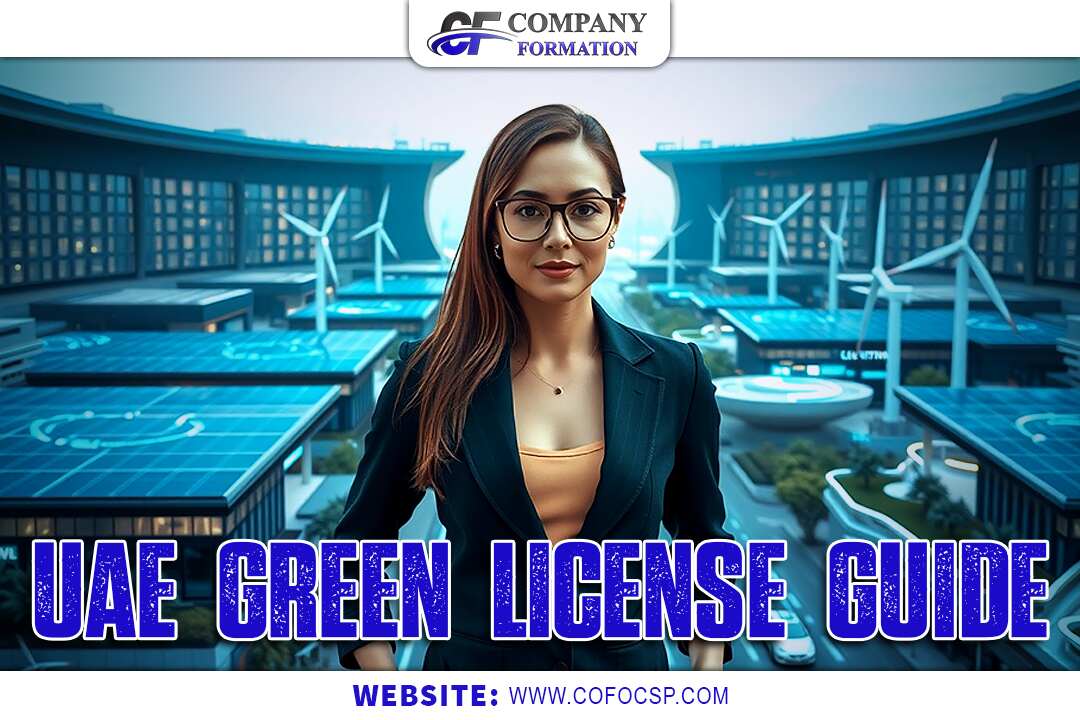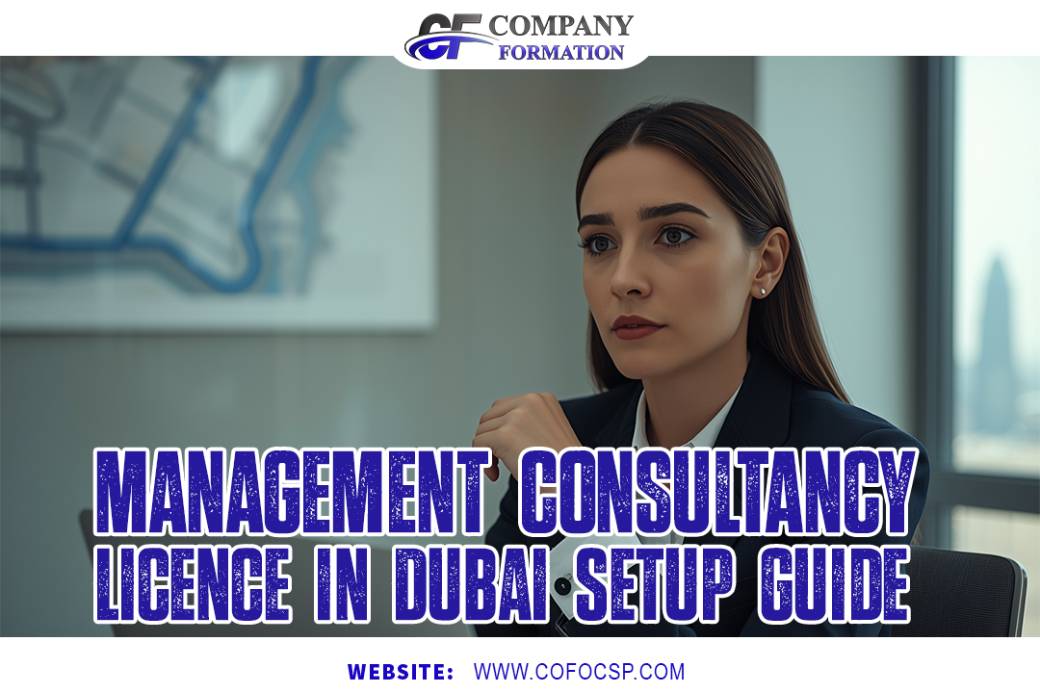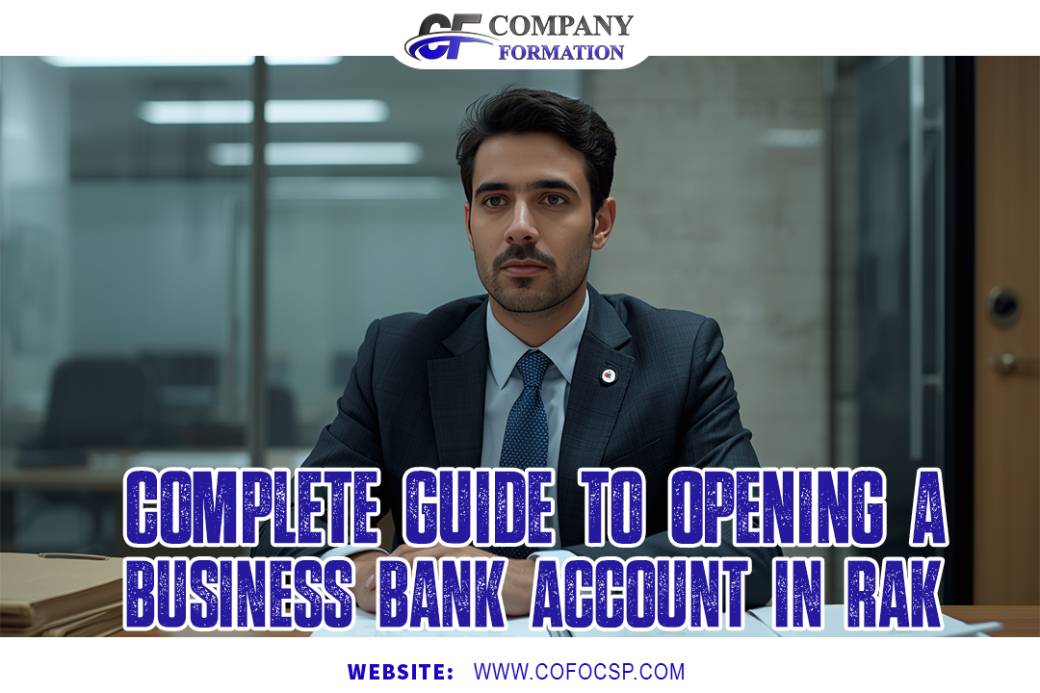Free Zone Visa in the UAE: Your Ticket to a Tax-Free Business Paradise
Picture this: you’re sipping coffee in Dubai, running a business with zero taxes, owning every inch of it, and living in a city that screams opportunity. Sounds like a dream? It’s real, thanks to the Free Zone Visa in the UAE! This residency permit is your key to unlocking a tax-free business environment in one of the world’s top global trade hubs. I’ve been there—navigating the UAE Free Zone Visa process for my tech startup in DMCC was a rollercoaster, but oh, was it worth it! Whether you’re an entrepreneur dreaming of company formation in Dubai, a professional seeking an employment visa, or a freelancer eyeing UAE Free Zone benefits, this guide has you covered. From visa eligibility criteria to Free Zone Visa costs, we’ll tackle every step, compare Free Zone vs. Mainland Visas, and answer question-based searches like “How to apply for a Free Zone Visa?” Let’s dive into the UAE Free Zone ecosystem and make your business dreams a reality with Company Formation Corporate Service Provider!
What Is a Free Zone Visa in Dubai, UAE?
A Free Zone Visa in Dubai, UAE, is a residency permit that lets you live and work in one of Dubai’s special economic zones, like DMCC, JAFZA, or IFZA. Unlike a mainland visa, which needs a local Emirati sponsor, this visa is issued by the Free Zone Authority tied to your business setup or job. It’s designed for entrepreneurs, employees, or dependents, offering attributes like 100% foreign ownership, tax exemptions, and access to financial services. When I launched my tech consultancy, the idea of no taxes and full control was like finding a unicorn in the desert!
Free Zones are economic zones crafted to boost business setup in the UAE. They provide a tax-free environment, streamlined regulations, and perks like easy bank account openings. The catch? You’re limited to operating within the Free Zone or internationally unless you grab extra licenses for UAE local market access. This makes UAE Free Zone Visas perfect for startups, global traders, or freelancers seeking a hassle-free setup. Curious about UAE immigration policies? These visas align with the UAE Economic Vision 2030, driving foreign direct investment (FDI) and making the UAE a magnet for global business.
Why Choose a Free Zone Visa for Your Dubai Business Setup?
Why pick a Dubai Free Zone Visa? It’s like choosing a VIP pass to a tax-free business party. Here’s why it’s a game-changer for company formation in UAE:
- Tax Exemptions: No personal income tax, no corporate tax, and zero import/export duties—your profits stay yours.
- 100% Foreign Ownership: Run your Free Zone company without a local partner, keeping full control.
- Financial Flexibility: Open UAE bank accounts, transfer funds globally, and tap into financial services for growth.
- Streamlined Setup: Free Zones offer office space leasing (like flexi desks or serviced offices) and rapid business registration.
- Visa Sponsorship Ease: Sponsor dependent visas for family or employment visas for staff with minimal red tape.
- Global Reach: Ideal for businesses eyeing international markets, with options to bypass mainland trading restrictions via additional licenses.
When I set up my tech consultancy in DMCC, the tax-free business environment and a sleek flexi desk made it a breeze. UAE Free Zones cater to industries like tech, media, logistics, and finance, so you’re in elite company. Plus, the UAE economy thrives on foreign investment, making Free Zone Visas a cornerstone of its global trade hub status.
Types of Free Zone Visas Available in Dubai
Dubai’s Free Zones offer a range of Free Zone Visa types to match your niche requirements. Here’s the breakdown:
Investor Visa for Entrepreneurs
The Investor Visa is for those launching a Free Zone company. You’ll need a business license and a minimum investment (e.g., AED 50,000 in some zones). Valid for up to 3 years, it lets you sponsor dependents and live in the UAE. I got this for my tech startup, and with a solid business plan, it was a smooth ride.
Employment Visa for Professionals
The Employment Visa Free Zone is for employees of Free Zone companies. Sponsored by your employer, it’s valid for 1–3 years based on your employment contract. You’ll need a job offer and sometimes attested educational certificates. It’s a favorite in hubs like Dubai Internet City.
Dependent Visa for Families
A Dependent Visa brings your spouse or kids to Dubai. You’ll need to show sufficient income (around AED 10,000/month) and provide a marriage certificate or birth certificate. This was a game-changer for relocating my family.
Student Visit Visa for Learners
Some Free Zones, like academic hubs, offer a Student Visit Visa for enrolled students. Tied to your study duration, it requires a university letter or KHDA approval. It’s niche but ideal for educational zones.
Partner/Investor Visa with Business Visit Privileges
The Partner/Investor Visa blends investor benefits with short-term business visit privileges. Perfect for partners in a Free Zone company who need flexibility without full residency.
Eligibility Criteria for a Dubai Free Zone Visa
To qualify for a Free Zone Visa in Dubai, you must meet these Free Zone Visa requirements:
- Business Setup: Register a company in a Free Zone or be employed by one.
- Business License: Hold a valid Free Zone trade license or professional license.
- Age: Be at least 18 years old.
- Passport Validity: Ensure your passport is valid for at least 6 months.
- Medical Fitness Test: Pass a blood test and chest X-ray for communicable diseases.
- Minimum Investment (Investors): Varies by Free Zone (e.g., AED 50,000 for some Investor Visas).
- Employment Contract (Employees): Secure a job offer matching the Free Zone’s business activities.
I learned the hard way that an expiring passport can derail your application—update yours early! Also, ensure your business license aligns with your industry, like media for Sharjah Media City or tech for DIC.
Step-by-Step Process to Get a Free Zone Visa in Dubai
Ready to apply for a Free Zone Visa? Here’s the UAE Free Zone Visa process, straight from my experience and the latest updates:
Step 1: Choose the Right Free Zone
Pick a Free Zone that matches your business activities. Top options include:
- DMCC: Ideal for commodities and trading, with a Global Free Zone award.
- IFZA: Budget-friendly for startups and freelancers.
- JAFZA: A powerhouse for logistics and international trade.
- DIC: Perfect for tech and IT businesses.
- Masdar City Free Zone: Focused on tech and innovation.
- DIFC: Tailored for financial services.
Research the Free Zone’s industry specialization to ensure alignment. I chose DMCC for its business-friendly regulations and office leasing options.
Step 2: Register Your Company
Complete company registration with the Free Zone Authority. Submit a business plan, passport copies, and application forms, then pay business license fees. This secures your Free Zone trade license, a must for visa eligibility. I used a business setup consultant in Dubai to handle the paperwork, saving weeks.
Step 3: Apply for the Free Zone Visa
Submit your Free Zone Visa application via the Free Zone’s e-channel services. You’ll need:
- Passport-size photographs
- Passport copy (valid for 6 months)
- Proof of company registration
- Business license
- Share certificate (for investors)
Most Free Zones process the entry permit in 48–72 hours. Fast-track options can cut this to 5–7 days for a fee.
Step 4: Complete Medical Fitness Test and Emirates ID Registration
Visit a medical center for a medical fitness test (blood test, chest X-ray). Then, apply for an Emirates ID, a mandatory card for UAE residents. This took me a day, and the staff were super helpful.
Step 5: Finalize Visa Stamping
Once you get the entry permit (valid for 60 days), complete visa stamping to activate your residency. Options include:
- In-Country Process: Submit your passport to the immigration department if in the UAE.
- Out-of-Country Process: Activate at a Dubai airport immigration counter if applying from abroad.
- Border Run Process: Exit and re-enter the UAE (avoid this—it’s complex!).
After stamping, you can sponsor dependent visas. My process took 10–15 days, but timing varies by Free Zone.
Free Zone Visa Cost Breakdown
Free Zone Visa costs vary by Free Zone and visa type. Here’s the scoop:
- Business License Fees: AED 10,000–25,000, based on Free Zone and business activities.
- Visa Application Fees: AED 2,000–5,000, covering processing and entry permit.
- Medical Fitness Test: AED 300–750 per person.
- Emirates ID Registration: AED 370 for 3 years.
- Sponsorship Fees: AED 1,000–3,000 for dependent visa sponsorship in some Free Zones.
For my Investor Visa in DMCC, I paid around AED 3,750, including medical tests and Emirates ID. RAK Free Zone, Ajman Free Zone, and Fujairah Creative City are among the cheapest Free Zone Visa options, with lower business license fees for startups. Check with the Free Zone Authority for exact costs.
Free Zone Visa vs. Mainland Visa: Key Differences
Choosing between a Free Zone Visa and a Mainland Visa? Here’s the comparison:
- Ownership: Free Zone Visas offer 100% foreign ownership; Mainland Visas often require an Emirati sponsor owning 51% (unless in specific setups).
- Validity: Free Zone Visas last up to 3 years; Mainland Visas typically last 2 years.
- Market Access: Free Zone Visas limit you to Free Zone or international trade unless you get extra licenses. Mainland Visas allow direct UAE local market access.
- Sponsorship: Free Zone companies or authorities sponsor visas; Mainland Visas need an Emirati sponsor or PRO services.
- Cost: Free Zone Visas are often cheaper (e.g., AED 3,750 average) than Mainland Visas due to lower setup costs.
For my tech startup, the Free Zone Visa won for full control and a tax-free environment. If you’re targeting the UAE local market, a Mainland Visa might be your pick. Need help choosing? [Your Brand Name] can guide you!
How to Check Your Dubai Free Zone Visa Status
Track your Dubai Free Zone Visa status easily:
- GDRFA Website (Dubai): Enter application details to check visa validity.
- ICP Website (Abu Dhabi, Sharjah, etc.): Monitor visa status for other emirates.
- Free Zone Portal: DMCC, JAFZA, and others offer real-time updates on online portals.
I checked my visa status on the DMCC portal, and it updated within 48–72 hours. Keep your application number handy!
Free Zone Visa Renewal and Cancellation
- Free Zone Visa Renewal: Renew before expiry (every 1–3 years). Submit updated passport copies, business license, and pay visa renewal fees (AED 2,000–5,000). It’s like the initial application but faster.
- Free Zone Visa Cancellation: To cancel, visit the Free Zone Authority with your Emirates ID and passport. No visa ban applies, unlike some Mainland Visas, making it flexible.
I renewed my DMCC Visa smoothly by prepping documents early. Stay ahead to avoid delays!
Cheapest Free Zone Visa Options in the UAE
Hunting for the cheapest Free Zone Visa in UAE? Try these:
- RAK Free Zone: Affordable for startups, with visa fees starting at AED 2,500.
- Ajman Free Zone: Low-cost business setup and visas, ideal for small businesses.
- Fujairah Creative City: Great for freelancers in media, with visa costs as low as AED 2,000.
I explored RAK Free Zone for a side project due to its low business license fees. Compare Free Zones based on your business activities and budget.
Common Challenges and Solutions for Free Zone Visa Applications
Free Zone Visa applications can hit bumps, but here’s how to solve them:
- Challenge: Delayed processing due to incomplete documents.
- Solution: Double-check application forms, passport validity, and business license. Use PRO services for accuracy.
- Challenge: Visa rejection due to mismatched business activities.
- Solution: Align your job title or business with the Free Zone’s industry specialization.
- Challenge: High visa costs for startups.
- Solution: Opt for cheapest Free Zone Visa options like RAK or Ajman, or negotiate flexi desk leases.
- Challenge: Confusion over visa transfer to another Free Zone.
- Solution: Reapply under the new Free Zone’s rules, as direct transfers are complex.
I hit a snag when my educational certificates weren’t attested. Verify them early to save time!
How Does a Free Zone Visa Compare to a UAE Golden Visa?
The UAE Golden Visa offers long-term residency (5–10 years) for investors, professionals, or talent, while a Free Zone Visa is tied to a Free Zone and business. Here’s the comparison:
- Validity: Golden Visa (5–10 years) vs. Free Zone Visa (1–3 years).
- Eligibility: Golden Visa requires significant investment (e.g., AED 2 million) or exceptional skills; Free Zone Visas need a business license or job offer.
- Benefits: Golden Visa offers broader UAE residency; Free Zone Visas provide tax exemptions and 100% ownership.
- Cost: Golden Visa costs are higher (AED 50,000+) vs. Free Zone Visas (AED 3,750+).
For my tech startup, the Free Zone Visa was ideal for its low costs and easy setup. The Golden Visa suits high-net-worth individuals or those not tied to a Free Zone.
FAQs About Free Zone Visa in the UAE
1. What is a Free Zone Visa in the UAE?
A Free Zone Visa is a residency permit letting you live and work in a UAE special economic zone like DMCC or JAFZA. Issued by the Free Zone Authority, it’s tied to your business setup or job offer, offering tax exemptions and 100% foreign ownership. It’s ideal for startups or global traders, unlike mainland visas needing an Emirati sponsor. My tech startup thrived thanks to this tax-free perk!
2. How do I apply for a Free Zone Visa in Dubai?
To apply for a Free Zone Visa in Dubai:
- Choose a Free Zone (e.g., IFZA for startups).
- Register a Free Zone company with a business license.
- Submit passport copies, photographs, and company registration via e-channel services.
- Complete a medical fitness test (blood test, chest X-ray).
- Finalize with visa stamping (in-country or at Dubai airport).
It takes 10–15 days, or 5–7 with fast-track options. Prep documents early to avoid delays!
3. How much does a Free Zone Visa cost?
Free Zone Visa costs vary:
- Business License Fees: AED 10,000–25,000.
- Visa Application Fees: AED 2,000–5,000.
- Medical Fitness Test: AED 300–750.
- Emirates ID: AED 370 (3 years).
- Dependent Sponsorship: AED 1,000–3,000.
My DMCC Investor Visa cost ~AED 3,750. RAK Free Zone offers visa fees from AED 2,500, perfect for startups.
4. What are the benefits of a Free Zone Visa?
Free Zone Visa benefits include:
- Tax Exemptions: No personal or corporate tax.
- 100% Foreign Ownership: Full control of your Free Zone company.
- Financial Services: Easy UAE bank account setup.
- Global Trade: Access international markets with minimal mainland restrictions.
These align with the UAE Economic Vision 2030, boosting foreign direct investment.
5. Who is eligible for a Free Zone Visa?
You’re eligible if you:
- Register a Free Zone company or have a job offer.
- Hold a business license.
- Are 18+ years old.
- Have a passport valid for 6+ months.
- Pass a medical fitness test.
Investors need a minimum investment (e.g., AED 50,000). My DMCC application sailed through with an attested business plan.
6. Which UAE Free Zone is best for startups?
Top Free Zones for startups:
- IFZA: Low-cost for freelancers.
- RAKEZ: Affordable visa fees (AED 2,500+).
- DMCC: Great for tech and trading.
Choose based on industry specialization. DMCC suited my tech startup perfectly.
7. Can I sponsor my family with a Free Zone Visa?
Yes, you can sponsor a Dependent Visa for your spouse or kids with:
- Income of ~AED 10,000/month.
- Marriage or birth certificate.
- Proof of residency.
This made relocating my family to Dubai stress-free.
8. How do I renew or cancel a Free Zone Visa?
- Renew: Submit passport copies, business license, and visa renewal fees (AED 2,000–5,000) before expiry (1–3 years).
- Cancel: Visit the Free Zone Authority with Emirates ID and passport. No visa ban applies.
I renewed my DMCC Visa in a snap by prepping early.
Action-oriented search: “Renew Free Zone Visa online”.
9. What’s the difference between a Free Zone Visa and a Mainland Visa?
- Ownership: Free Zone: 100% foreign ownership; Mainland: Often needs an Emirati sponsor (51%).
- Market Access: Free Zone: Limited to Free Zone/international trade; Mainland: Direct UAE local market access.
- Cost: Free Zone: ~AED 3,750; Mainland: Higher.
Free Zone Visas suited my tech startup’s tax-free goals.
10. How does a Free Zone Visa compare to a UAE Golden Visa?
- Validity: Golden Visa: 5–10 years; Free Zone Visa: 1–3 years.
- Eligibility: Golden Visa: High investment (AED 2M+); Free Zone Visa: Business license or job offer.
- Cost: Golden Visa: AED 50,000+; Free Zone Visa: AED 3,750+.
Free Zone Visas are budget-friendly for startups.
Conclusion: Launch Your UAE Free Zone Journey with Confidence
Securing a Free Zone Visa in Dubai, UAE, is your fast track to a thriving business setup in Dubai or joining its dynamic workforce. With tax exemptions, 100% foreign ownership, and a streamlined visa application process, Free Zones make the UAE a haven for entrepreneurs, professionals, and freelancers. Whether you’re after an Investor Visa, Employment Visa, or Dependent Visa, meeting Free Zone Visa requirements is straightforward with the right guidance.
Overwhelmed? Company Formation Corporate Service Provider business setup consultants in Dubai and PRO services make company registration and visa stamping a breeze. Our client, Sarah, launched her e-commerce business in IFZA with our help and saved weeks of hassle. Start your tax-free business environment journey today with [Your Brand Name]—contact us to make your UAE dream a reality!







